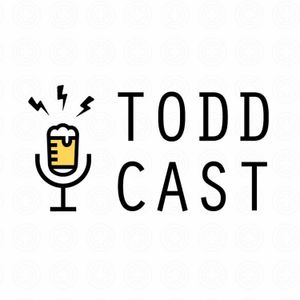
LSB Marketing Toddcast
LSB Marketing Toddcast
The Anatomy of a Modern Campaign
JUN 30, 201626 MIN

The Anatomy of a Modern Campaign
JUN 30, 201626 MIN
Description
Grab your headphones—and maybe a beer. Prefer wine? We can do that, too.
We're happy to introduce the first episode of a new podcast, which we're calling the LSB Marketing Toddcast, hosted by our very own Todd LaBeau.
For the first Toddcast, Todd's guest is Lindsay Ferris, SVP and Chief Marketing Strategist here at LSB.
What you'll find in the episode
The notion of ad formats is dying.
Sure, you may see some :30 TV commercials, print ads, or banner ads. But they're not driving what we do anymore. In the past, a a client would come to an agency with a specific need: We need a TV spot. It will have a beginning, middle and end and a clear call-to-action.
Now? There's an explosion of channels. Apps, branded content, social media content ... there are so many ways to consume media and content, those old formats are hardly relevant.
What will happen if the advertising industry doesn't change? Well, just look at the music industry for a tip.
So what are some of the ways things are different?
Co-creation of content
Start by thinking about what American Express did with Seth Meyers. Consider Stephen Colbert's brand integrations. Because while traditional formats may be disappearing, brands still need to market themselves. But they need to find new ways of doing so.
Paid, earned and owned media
Traditional campaigns relied heavily on paid media—they were often almost 100 percent reliant on paid media. Your classic paid advertising placements.
Modern campaigns, however, use earned and owned media aggressively, as well. What's earned media? It includes traditional PR, as well as more organic impressions that appear on channels you don't control, including social media. Owned media are the channels a brand controls—websites, apps or blogs.
The critical mass comes when brands use these three media types symbiotically.
The idea. AKA Story-doing, not story-telling.
What really drives a modern campaign is an idea. Not a tagline.
An idea like: What if you could stay the night inside a Van Gogh painting? That's an idea. It's not just a story you tell, it's a story you do.
Modern campaigns essentially should be story-boarded.
What's your social object?
What kind of media coverage (earned media) can you garner about said object? Don't forget trade media.
How can you use paid support to drive more traffic to your earned media hits?
What's next—can you leverage your owned channels to support the campaign?
Yes, this can be scary.
There's freedom in modern campaigns. But freedom can also be terrifying. The important thing to remember is that these ideas don't need to cost millions of dollars.